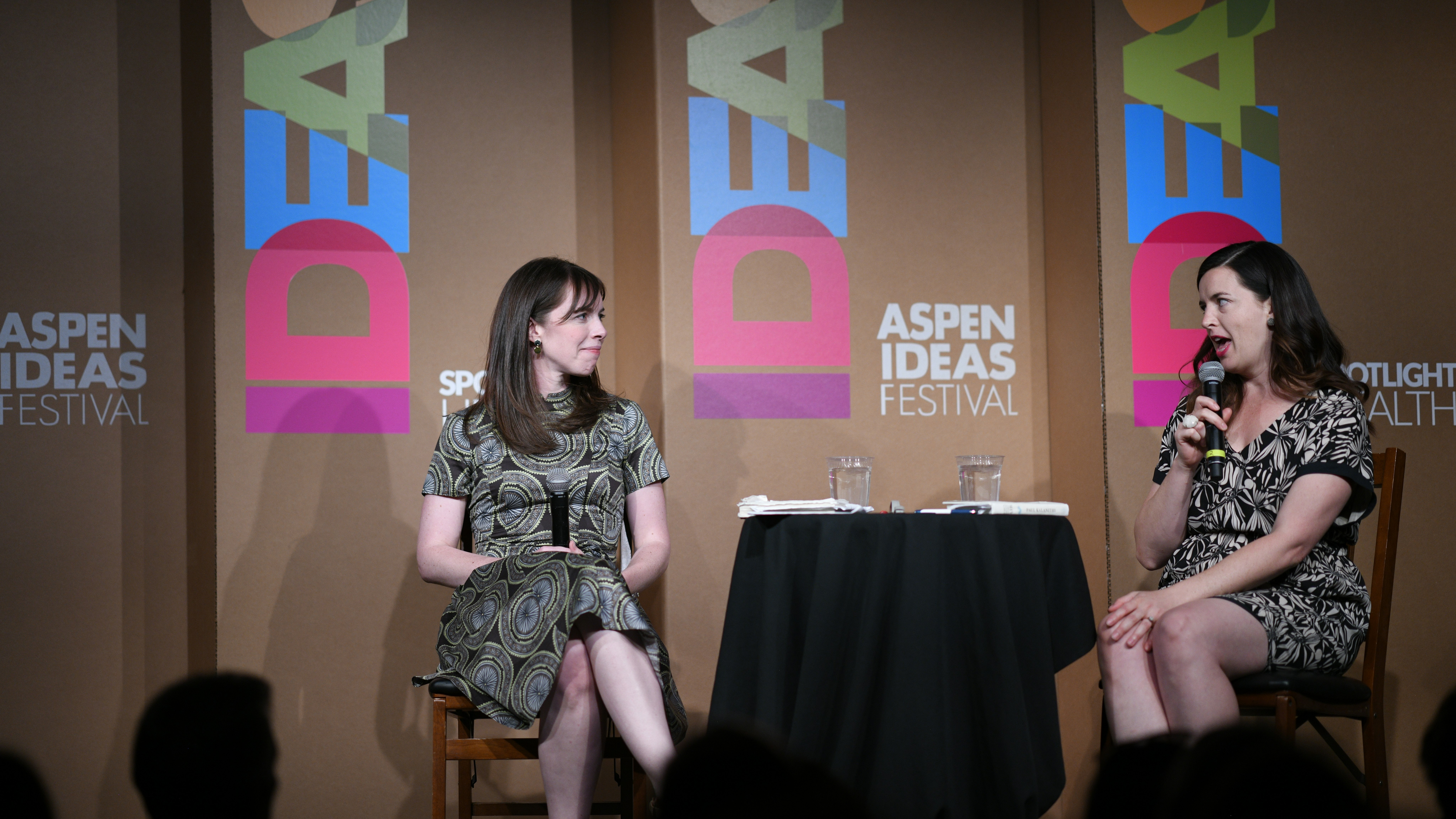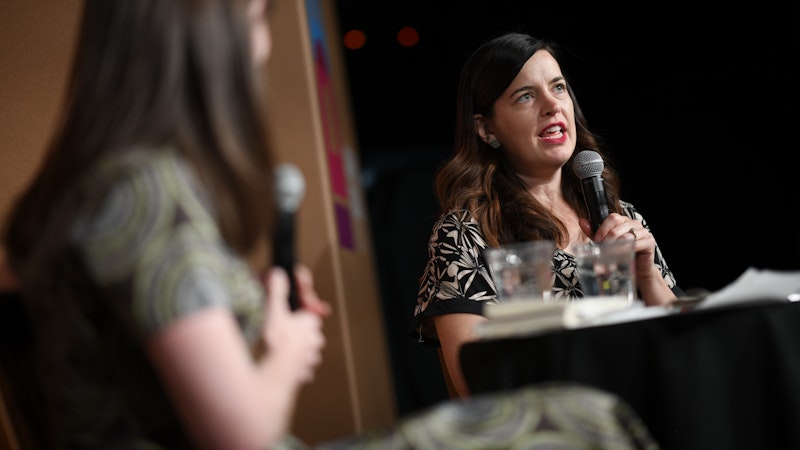
When Breath Becomes Air: A Conversation About Life, Death, and Humanity in Health Care
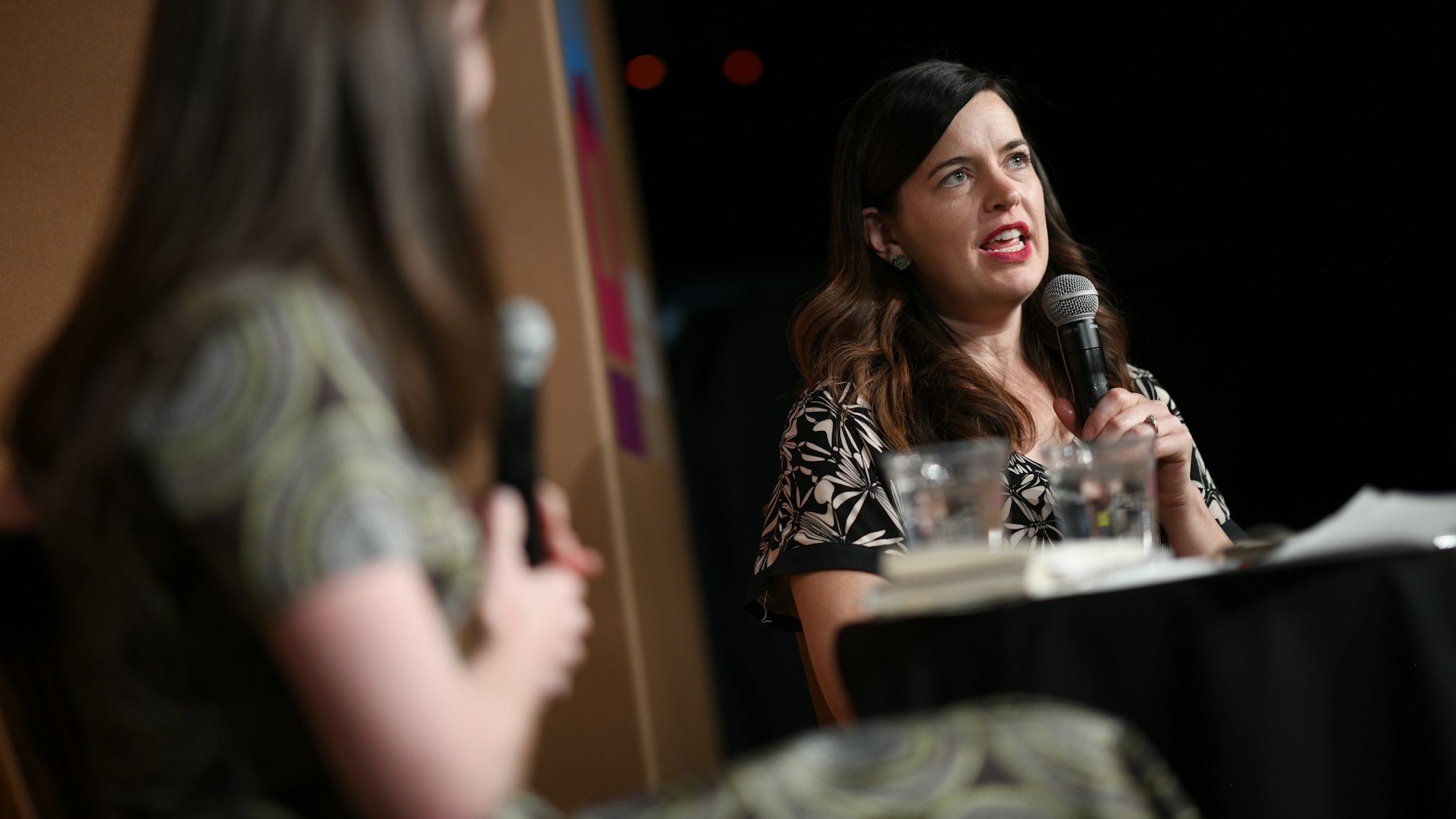
I used to think, you try to raise a happy child. Now I think, no, you try to raise a resilient child.
Setup
Illness and death are universal challenges, but not something we anticipate in our 30s. Kate Bowler and Lucy Kalanithi understand that any of us can confront these harsh realities at any time. Bowler was 35 when she was diagnosed with stage IV colon cancer. She tried to make sense of it in Everything Happens for a Reason: And Other Lies I’ve Loved. Kalanithi, an internal medicine doctor, completed her husband Paul’s manuscript, When Breath Becomes Air, after the neurosurgeon died of lung cancer at the age of 37. The two women discuss life, death, and the pursuit of humanity in American health care.
Ideas
- 2018 Health
Why it was so important to write about such deeply personal experiences
Kalanithi and Bowler begin by discussing the reasons behind their books. Kalanithi’s husband, Paul, was a voracious reader, and found some comfort in the final stages of his cancer by writing about it, naming it, trying to understand suffering through words. It was better than trying to seek comfort in statistics, Kalanithi noted. Bowler says she wrote her book to be honest about herself, not because she thought she was an important person with deep insight to share. But holding her “life up to the light” was intense and slightly uncomfortable, she admitted.
People react to getting sick differently, and that experience can be harshly enlightening
Bowler and Kalanithi discuss their reactions to the cancer diagnoses in their lives, and what it ultimately taught them. Bowler explains how her status in her family seemed to change when she became this “thing that happens to people,” and how it made her feel alienated. Kalanithi talks about her and Paul’s decision to have a child after he got sick, her worry for how the decision would increase his suffering, and how Paul reassured her.
Big IdeaThere’s so many things we do in our lives, that we don’t choose to do because they’re easy, but that we chose to do because they’re rich and meaningful and deep. And I’m not sure if there’s a point to suffering, except it connects you to all other human beings across time forever.Lucy Kalanithi
How to be helpful to a loved one who’s sick or dying
Bowler talks about how the language we use around someone who is sick or dying can make such a difference. She struggles with what she says is the American desire to always put things into perspective, to always have a lesson. But what she really needed from others during her intensive cancer treatments were the basics: help with errands, babysitting, food. “The best people realize there’s nothing special they’re going to bring,” says Bowler. “They just do a thing so that lifting this heavy weight doesn’t seem so heavy anymore.”
Takeaway
You might change your perspective on how to raise children when you’ve suffered
Bowler and Kalanathi discuss how they’re raising their children in the face of suffering and death.
-
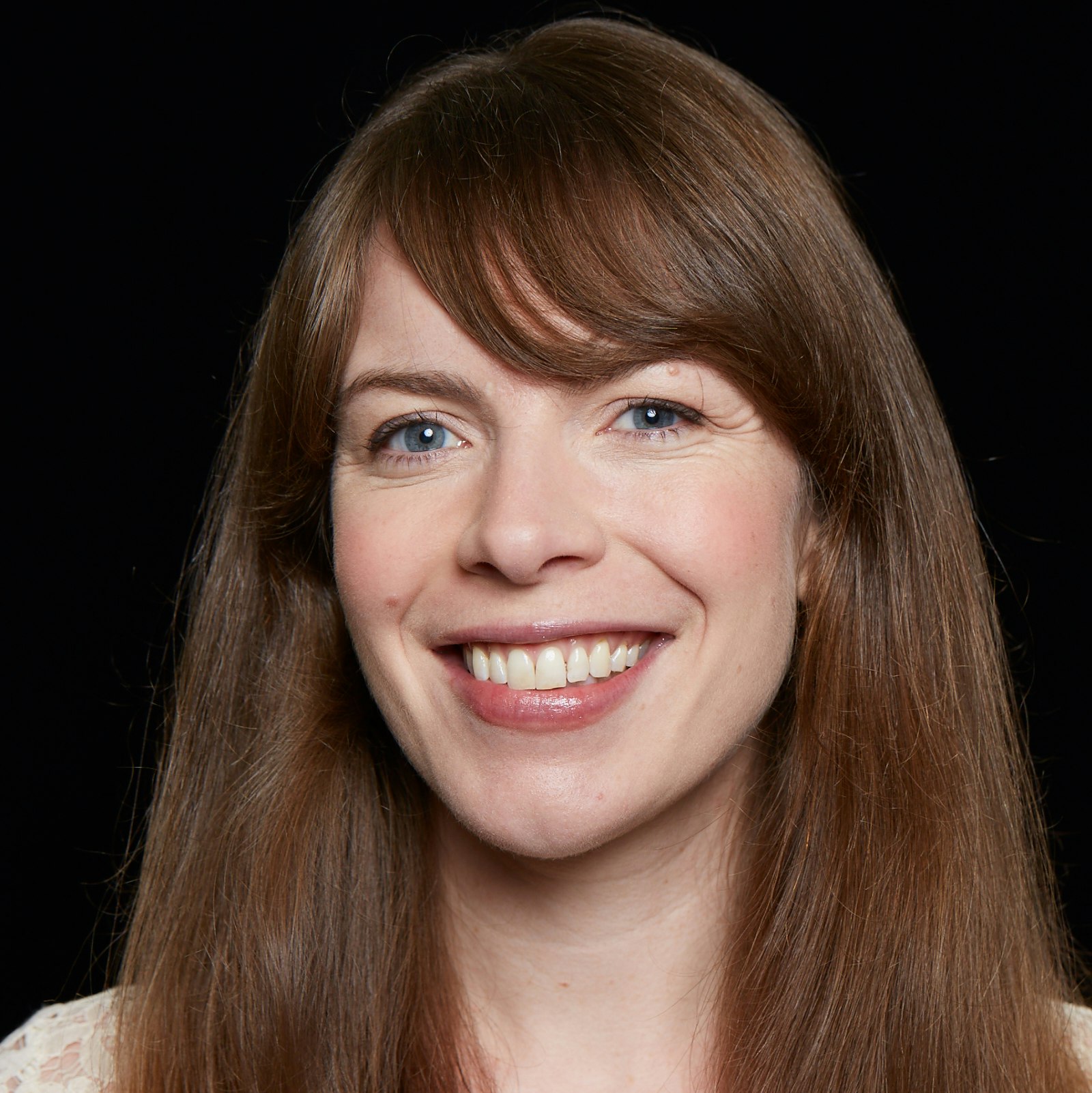
Lucy Kalanithi: Can you tell us what it’s like to raise a child in the midst of this and what you’re teaching your son that maybe is different from what you would have? Or, just in general, what you feel like with your son, who’s four.
-

Kate Bowler: I thought my job before was to create the hamster bubble around him, and say we live in it here, and my job is to give you interesting hobbies and life enrichment and a vague but important sense of the problems of the world. But it’s my job to love you and let you grow in this perfectly insulated little ecosystem. Then I became aware that the worst thing in his life might be me, and that almost broke my heart.
-

Lucy Kalanithi: How old was Zach when you were diagnosed?
-

Kate Bowler: He was still one. And all my strongest memories of when I was the hospital, and I couldn’t pick him because of the surgical scars.
-

Lucy Kalanithi: And I’m sure you wondered whether he would remember you.
-

Kate Bowler: Oh my gosh, it was just the helplessness — exhausting. I think what I learned for myself and for Zach is that my job is not to pretend that I can use certainty or determination to solve every problem. But that if I can show him that the purpose of life is not to avoid pain but to find a way through, then I can raise the most compassionate softy in the world.
-

Lucy Kalanithi: I agree with that. I used to think, you try to raise a happy child. Now I’m like, no, you try to raise a resilient child.
-

Kate Bowler: Yeah. Brave in the face of reality.
-

Lucy Kalanithi: We talked earlier about the things that are important for your family to know about you and even your doctors to know about you. We talked about, what are the things you don’t ever want to give up? You only talked about Zach. You said, I would put up with a lot of suffering to be there for Zach, and you also talked about how you don’t want him to suffer. You yourself would make tradeoffs that would allow him to suffer less. I thought it was so lovely. I think it’s really important to know your own North Star.
-

Kate Bowler: Yeah, and that if fragility is a given, if we’re all paper sometimes, then the point is to choose between competing loves. I’m loving this life, but there are other things that I would trade a lot of things for. And thank god they happen to be the things that I chose in the first place.
Learn More
Additional Information
Explore More
Arts

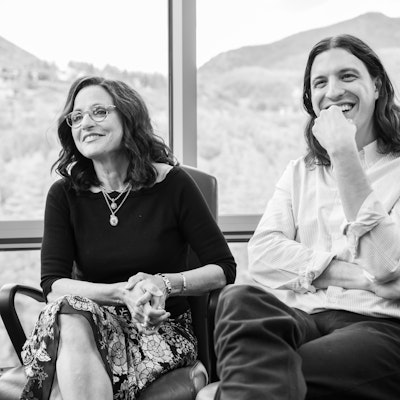
Julia Louis-Dreyfus has kept us laughing for years in her roles as Elaine Benes in “Seinfeld” and Selina Meyer in “Veep.” But her most recent work has her shifting from comedy...


It’s a tough time to try and express the complexity of life honestly. Writer Chimamanda Ngozi Adichie doesn’t shy away from truth-telling and believes we should all step up an...


Creativity is as intrinsic to our species as any of our basic instincts, says Debbie Millman, designer and curator. But for millions of people in the United States, the abilit...


The entertainment industry has had to pivot and refresh time and again to adapt to constant changes in format, business models and attention spans. Somehow, producer Brian Gra...


Millions of children across America don’t have art classes in school and don’t grow up going to art museums and galleries. They might be hours away from the closest museum, or...

October is National Book Month, and we’re celebrating by looking back at some of our favorite conversations about reading and writing from the Aspen Ideas Festival and Aspen I...

Jump in by watching our 15 most popular talks of all time. From black holes to jazz and civil rights to psychology hacks, we've collected the talks that remain audience favori...

The arts are not just forms of expression, but powerful forces that shape culture and the human experience, both reflecting and influencing our world. Join renowned artists, w...

As one of the foremost reporters of his generation, Nicholas Kristof has been witness to century-defining events and atrocities around the world. How has he managed to weaponi...
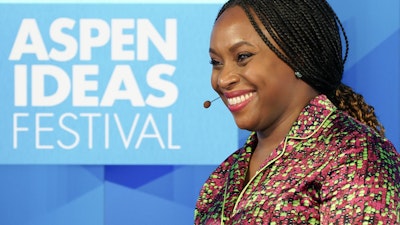

Amid seismic shifts in the entertainment world, Oscar-, Golden Globe- and Emmy-winning Brian Grazer has managed to keep pivoting to new ways to tell stories in movies, TV and...

In the last 30 years, conglomerates from Amazon to Netflix to Spotify have changed the way we interact with media, books, fashion and music. Creatives are struggling to mainta...

Hurray for the Riff Raff is more than Alynda Segarra’s musical moniker; they spent their youth hopping trains across America, capturing that life in youthful poetry then and a...

Images communicate truths, and also lies. Learning to pay attention to photographs can help us discern. An art and cultural historian and a visual artist host a master class o...

When people in prison are given creative outlets, the impact is life-changing. Hear from a hip-hop artist setting up prison recording studios, an architect designing more huma...

Whether as Elaine Benes from “Seinfeld” or Selina Meyer from “Veep,” Julia Louis-Dreyfus delivers laughter. But in the upcoming film “Tuesday,” she communicates with death — i...
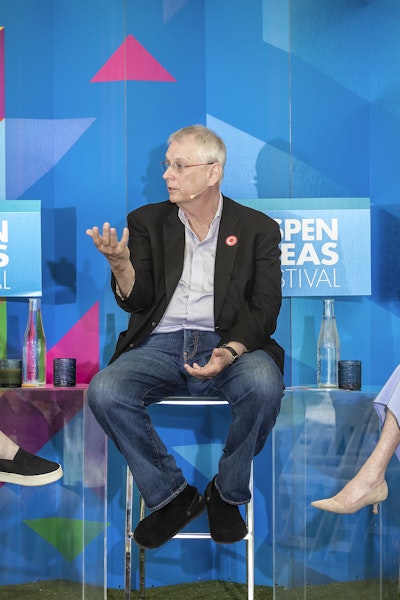
You may not know what typeface this sentence is written in, but typography is crucial to how we convey, process and retain information. How has the form evolved? Hear from des...

Maybe all of us feel like we’ve been raised by Hollywood, but being raised in Hollywood is a different kind of drama. Actor, producer and director Griffin Dunne joins friend (...

Here’s a radical proposal: Make access to the arts free for everyone. Leaders on a mission to bring Americans into art spaces discuss the transformative power of the arts, and...

Rosalind, Viola, Portia and Beatrice are unforgettable roles in Shakespeare’s plays. But there were real women behind these characters — women who spoke out against patriarchy...





